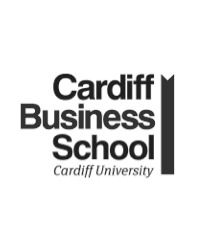Exploring the concept of institutional logics in organization studies: Critique and recent developments

CALL FOR PRESENTATIONS: PHD AND EARLY CAREER ACADEMICS - April 9 2013 - Cardiff Business School - Cardiff University
Interest in the concept of institutional logics has accelerated in the past 10 years with the seminal work of Friedland and Alford (1991) providing the conceptual impetus to move New Institutionalism beyond assessments of institutional isomorphism and stability. Particular attention has been given to institutional complexity where several logics are in play at the same time. This has explanatory potential because such complexity draws attention to the contrasting social orders – the market, state, family, religions, corporation, professions and community – that shapes social action within specific historical contexts (Thornton, Ocasio and Lounsbury, 2012). In turn, this work has reignited interest in questions about structure and agency in institutional analysis because the explanatory architecture of the institutional logics concept connects three levels of analysis: individuals, organizations and society. The result has been a renewed effort to link micro-processes of agency with progressively higher orders of analysis relating to plural institutional settings (Greenwood, Raynard, Kodeih, Micelotta & Lounsbury, 2011).
While the logics concept has opened-up space to reflect on individuals within institutional analysis and reconsider market-dominated representations of organizing and organizations more needs to be done to further our understanding of institutional complexity and specify how different levels of analysis are nested. For the most part recent empirical work in this area has been limited to explorations of competing pairs of institutional logics. In turn, such work has been criticised for either adopting a ‘downward’ representation of structure which prioritises structure over agency (Leca & Nacacche, 2006) or conflating agency and logics by focusing on ‘interactions’ (Hallett and Ventresca, 2006). Hence, there is considerable scope for further reflection around the concept and opportunity to extend empirical explorations of complexity for understanding organizing and organizations.
Members of the Cardiff Group of Organization Theorists (CORGies) have organized a modest workshop for both PhD students and early career academics to debate their ideas with an audience of both institutional and critical management scholars. They include Professor Roger Friedland, the joint architect of the institutional logics concept (Friedland & Alford, 1991), and Professor Rick Delbridge, Professor Hugh Wilmott, Professor Mahmoud Ezzamel, Professor Robyn Thomas, Professor Mike Reed and Professor Glenn Morgan.
Tuesday 9th April – PhD and Early Career Workshop
This all-day workshop is a unique chance for both PhD students and early career academics interested in institutional logics. Applicants should send a 1,000 word abstract to Dr Tim Edwards (edwardstj@cardiff.ac.uk) no later than 5pm on Friday 1st March. An acceptance email will be sent to applicants by Friday 15th March. There will be limited spaces for those wanting to present their work (12 presentations) although we would like to encourage all of those that are interested to come and join us for this event. If you want to be part of the audience then will you please email Dr Tim Edwards (edwardstj@cardiff.ac.uk) for further details.
(Note: We are hoping to offer travel and subsistence bursaries for those presenting their work. However, this has not yet been agreed with the funding body so please be aware that unless otherwise indicated nearer the workshop the costs of attending are the responsibility of the applicant).
While the logics concept has opened-up space to reflect on individuals within institutional analysis and reconsider market-dominated representations of organizing and organizations more needs to be done to further our understanding of institutional complexity and specify how different levels of analysis are nested. For the most part recent empirical work in this area has been limited to explorations of competing pairs of institutional logics. In turn, such work has been criticised for either adopting a ‘downward’ representation of structure which prioritises structure over agency (Leca & Nacacche, 2006) or conflating agency and logics by focusing on ‘interactions’ (Hallett and Ventresca, 2006). Hence, there is considerable scope for further reflection around the concept and opportunity to extend empirical explorations of complexity for understanding organizing and organizations.
Members of the Cardiff Group of Organization Theorists (CORGies) have organized a modest workshop for both PhD students and early career academics to debate their ideas with an audience of both institutional and critical management scholars. They include Professor Roger Friedland, the joint architect of the institutional logics concept (Friedland & Alford, 1991), and Professor Rick Delbridge, Professor Hugh Wilmott, Professor Mahmoud Ezzamel, Professor Robyn Thomas, Professor Mike Reed and Professor Glenn Morgan.
Tuesday 9th April – PhD and Early Career Workshop
This all-day workshop is a unique chance for both PhD students and early career academics interested in institutional logics. Applicants should send a 1,000 word abstract to Dr Tim Edwards (edwardstj@cardiff.ac.uk) no later than 5pm on Friday 1st March. An acceptance email will be sent to applicants by Friday 15th March. There will be limited spaces for those wanting to present their work (12 presentations) although we would like to encourage all of those that are interested to come and join us for this event. If you want to be part of the audience then will you please email Dr Tim Edwards (edwardstj@cardiff.ac.uk) for further details.
(Note: We are hoping to offer travel and subsistence bursaries for those presenting their work. However, this has not yet been agreed with the funding body so please be aware that unless otherwise indicated nearer the workshop the costs of attending are the responsibility of the applicant).
2/2/13